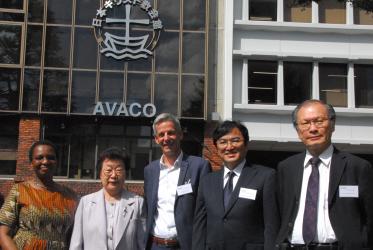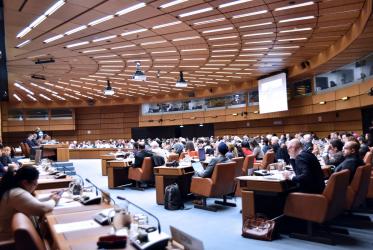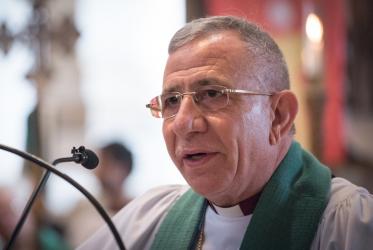Displaying 1 - 14 of 14
18 September 2019
WCC represented at G20 Interfaith forum in Tokyo
13 June 2019
Turning plans into action to prevent incitement to violence
14 February 2018
Bishop Younan awarded Niwano Peace Prize
22 February 2017
WCC/UN conference calls for coordinated action on refugee crisis
20 January 2016
WCC urges responsibility for and support to the refugees in Europe
04 September 2015
“The world must be freed of nuclear weapons”
06 August 2015
Momentum builds for ban on nuclear weapons
16 December 2014
Weaving together personal faith and climate change
23 September 2014








